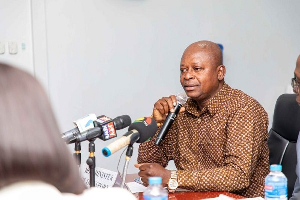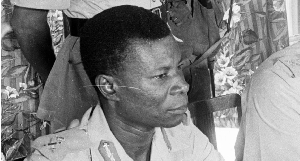MORE than 19 cases have been listed for the National Reconciliation Commission’s (NRC’s) first hearings in camera, which begun yesterday at an undisclosed venue.
The Executive Secretary of the NRC, Dr Kenneth A. Attafuah, in an interview at the weekend, said it is, however, not clear whether all the cases could be heard during the one-week period.
He said the hearings in camera will be a regular feature of the NRC’s activities and that in the event that not all the listed cases are heard in the first instance, the rest will be rescheduled for another time.
He said there are many more cases which have not been investigated and that some of these could also be added to subsequent in-camera hearings.
Dr Attafuah said the cases cover a wide range of issues which border on the security of the state, safety of individuals and public morality.
He said in subsequent hearings, the commission may group similar cases to facilitate its work. He said members and staff of the commission as well as any other persons who may be present at the private hearings are obliged to observe confidentiality and secrecy as outlined in Section 19 of Act 611, which established the commission.
“Such persons have a duty to preserve and assist in the preservation of the confidentiality of any matter which the commission may designate as confidential and to which such persons have become privy, including, in appropriate circumstances, the identity of witnesses,” he explained.
According to Dr Attafuah, in appropriate cases, the commission may issue an order prohibiting the publication of any identifying characteristics of a witness.
“However, under Section 12 of the act, the commission may, ‘for good reason’, direct the disclosure or publication of some information about the identity of a witness or the proceedings,” he said.
He added, “This may be the case, for instance, where the commission believes that such a publication is in the national interest.”
The Executive Secretary said any person who breaches the confidentiality obligations imposed on him or her by the act commits an offence and is liable on summary convicton to a fine or to a term of imprisonment not exceeding two years or both.
General News of Tuesday, 29 April 2003
Source:












